In case you didn’t know/don’t remember, I veered off on a newish career path ten months ago when we moved. I went from working in nutrition policy and communications to counseling people on nutrition at an integrative health clinic. Integrative medicine and nutrition (also called functional medicine/nutrition), addresses the underlying causes of disease. It focuses on the whole person, not just an isolated set of symptoms. The doctors I work with are more interested in finding the ‘why’, rather than covering up symptoms with prescriptions.
I have been interested in integrative health since I became an RD in 2007. I even started this blog as an outlet for my musings in 2009, so it seems funny to me that I waited so long to explore this type of nutrition career. I really am loving it. It’s very rewarding and satisfying to talk to people about nutrition and their diet. Most days, I feel like I really make a difference.
I’ve learned so much in the past months, but the most significant, surprising thing I’ve learned is in regards to weight loss. The mainstream approach to overweight and obesity emphasizes energy balance – calories in/calories out. Cutting calories equals weight loss, right? Well, I’m going to tell you that 8 out of 10 of my overweight/obese patients don’t eat enough.
Patients think they’re being so “good” when they tell me that they had yogurt for breakfast, a “healthy” frozen meal for lunch, and a grilled chicken salad with light dressing for dinner. “Why am I always hungry? Why am I not losing weight?” Patients are always flabbergasted when I tell them to eat more.
Not eating enough means the body isn’t getting enough fuel to function properly. Think about this – function properly. Your body needs fuel in the form of calories to do anything – make hormones, fight disease, grow hair, digest food properly, build muscle, etc. The list is endless. The body will do whatever it can to burn fewer calories, including burning muscle for fuel, because muscle requires more calories to maintain than fat. That’s a double whammy for those trying to lose weight.
Most people can realistically consume 2000 calories a day. Sound like a lot? Plug in your info into these calculators:
- http://www.health-calc.com/diet/energy-expenditure-advanced
- http://www.womenshealthandfitness.com.au/energy-counter
Track your calories with MyFitnessPal or LoseIt for two weeks and then tell me you don’t feel better all around. Some people can naturally and instinctively consume the number of calories that will support a healthy weight, but most people need a little retraining. That’s why I recommend calorie counting, if only for a short amount of time. People need to see how much food 2000 calories looks like.
Stop eating the puny breakfast. Stop binging at night or eating massive restaurant meals. Eat three squares a day, a healthy snack or two, and fuel your body!



